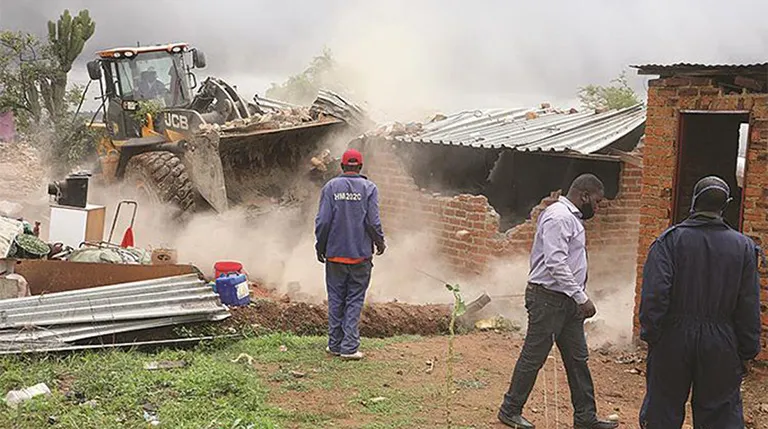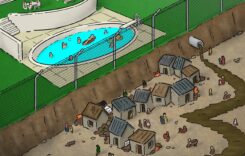Zimbabwe central and local government authorities have moved against some illegal settlements in the last few months, arresting hundreds of people and demolishing houses in some parts of the country. This factsheet outlines the legal requirements for lawful evictions and demolitions of illegal houses, structures and settlements.
What does the National Constitution say?
Freedom from arbitrary eviction
Section 74 states that a person may be evicted from their home, or have their home demolished, without an order of court made after considering all the relevant circumstances.
Government departments are not at liberty to unilaterally and randomly demolish any structures in the absence of a court order authorizing them to do so, regardless of whether they comply with the requisite legal requirements or not.
Right to administrative justice
Section 68 states that every person has a right to administrative conduct that is lawful, prompt, efficient, reasonable, proportionate, impartial and both substantively and procedurally fair. It goes further to state that any person whose right, freedom, interest or legitimate expectation has been adversely affected by administrative conduct has the right to be given promptly and in writing reasons for the conduct. The above section implies that every person has a right to administrative conduct that is procedurally and substantively fair before destruction of their property.
Specific laws that address the issue of demolitions
The Urban Councils Act
- Section 180 and 186 state that structures can be demolished if they are built over sewers, drains or water mains — though in the case of water mains the council must give at least 30 days’ notice.
- Under section 199 of the Act councils have a duty to enforce title deed conditions and circumstances under which townships can demolish buildings.
- Under the Third Schedule to the Act, councils can make by-laws for the demolition of temporary structures that are unhealthy or have been erected without permission (paragraph 42 of the Schedule) and of permanent buildings that have been erected unlawfully (paragraph 43).
Rural District Councils Act
Section 73 of the Act states that in order to ensure the conditions of title to any land in the council are properly observed, the authorities can without compensation, cause any building willfully erected in contravention of any such condition to be demolished and recover from any person responsible for such contravention the expenses incurred by the council in connection with such demolition.
Before taking any action, the council is required to serve notice on the owner and on the occupier of the building or land in respect of which the action is proposed to be taken, specifying the nature of the action proposed and the grounds upon which the council proposes to take that action.
Aggrieved persons may within 28-days (after the date of the service of a notice) appeal to the Administrative Court and no action thereafter shall be taken by the council until the appeal has been determined by that court or the appeal has been withdrawn or abandoned.
Sources
Related
Do you want to use our content? Click Here












